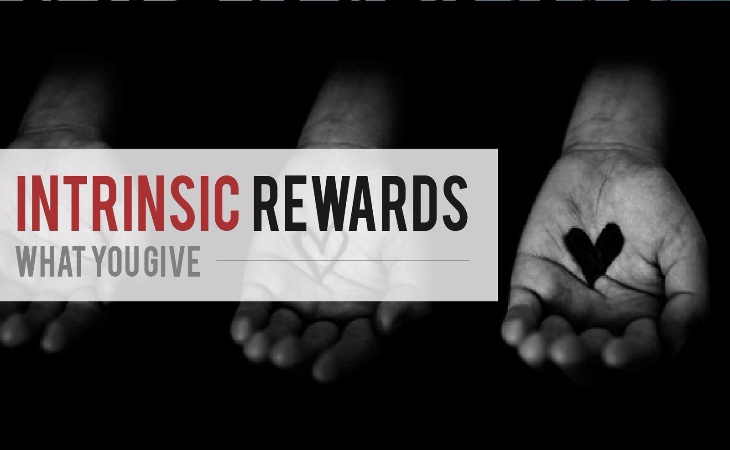The Ultimate Guide to Choosing the Best College Programme (Part 3)
Before we draw the curtain on the last part of this foolproof series, here are four final (we promise) considerations that you should go over with a fine-tooth comb.
Updated 08 Jun 2016

Recap: In Part 1, we sought to answer the perplexing question of “Who am I?”, while Part 2 was about cracking the two-point-six-billion-ringgit question of “Based on who I am, what are some gratifying career options to dig into?”.
Before we crash make a grand entrance into the finale of this exclusive (read: meticulously crafted) 3-part series, allow us to put our hands together for a standing ovation (#slowclap). Despite the seemingly daunting scroll of texts, you’ve impressively proven yourself to be a responsible young adult (taking charge of your future is the first move *winks*).

Part 3: Practical Considerations
Now that you’ve dug your way out of a rut and have a better grasp of yourself and the working world, we’ll roll out the last part of our series – the ever sensible-practical-pragmatic-realistic-earthy considerations that you should weigh and scrutinise under a microscope before choosing “The One”.
And oh, spoiler alert! While the first two parts of our series may set loose an uplifting and promising vibe, in this chapter however… you may want to bid those fairyland days a farewell (#thingsjustgotreal #welcometoadulthood).
#1. Reward – What’s in it for me?
We’re constantly on the hunt for pleasurable stimuli – be it a yummy delicacy, an ice-cold Coca-Cola or that exotic holiday spot you’ve been eyeing to set foot in. It turns out, this isn’t just because we’re part of a generation of ungrateful millennial, or because we don’t appreciate life enough (sounds familiar?). But rather, such constant yearning is a product of a reward system that happens to be conveniently and biologically wired in each of us.
This reward system is what drives us to do what we do, and every one of us is motivated either extrinsically, or intrinsically (or sometimes both). Here's why this matters when it comes to making a decision about your college course and future career.

A) Extrinsic Rewards
Let’s face it – we all have bills to pay, educational loans to get off the hook from (unless you’re perfectly fine with no vacations), travel deals that we are too kiasu to miss out on and Instagram-worthy cafes to brag about (you get the point ‘cause the list will only go on endlessly).
The nuts and bolts here is that sometimes (read: most of the time), it’s totally understandable if your priorities lie on what you are getting from a job. In this case, your main source of motivation that drags you out of your gravity-inclined bed everyday stems from the extrinsic rewards that are offered by a job.
What exactly does these coveted extrinsic rewards comprise of? Yes, it’s none other than the money, money and money.
Extrinsic rewards are tangible and they usually come in the form of monetary rewards - pay rises, three-month bonuses, benefits of all sorts (medical, dental, loan, housing, car), promotions to climb up the corporate ladder, glory and status, company trips and even down to the prospect of bagging away the latest iPhone from lucky draws during annual dinner.
If you lean towards the extrinsic side of the continuum, perhaps you can have a go at courses that eventually grant you with a platform to dabble with the best paying jobs. Corporate fields such as sales and investment banking are likely to feed your bank account more, while strategy consulting could very well be a field that confers you with status and reputation.

B) Intrinsic Rewards
Before you jump into hasty conclusions, no… not everyone slips into the first department.
There are a lot of beautiful souls out there who resonate with intrinsic motivations. These are also the same clan of folks who’re searching for something beyond what our materialistic world is able to offer.
Perhaps you’re one of those who struggle to stick through a career if it doesn’t inject you with values or meanings, despite the generous pay. Or you could be one of those who strive to bring an increased sense of meaning into the lives of others through a fulfilling career (#humanityrestored). Contrary to the former, the source of motivation here radiates from within. For instance, a doctor who volunteers in the rural area of Africa may work really long hours just because he’s fuelled by the motivation to improve the health of underprivileged kids.
Intrinsic rewards basically reflect the role of a particular job itself as the meatiest source of motivation that fulfils you intrinsically, fuelling you to perform your utmost best because it fills up a void in you. Such motivation comes not from external rewards like praise, wealth and fame, but originates from you, where you and you alone kickstart the drive for excellence.
Many intrinsic-goers are actually encapsulated by the notion of “making a difference”; regardless of the income and hierarchical rank, the contentment from being able to help others is all that matters. Social workers, nurses, teachers and counsellors are amongst the professions that strive to serve others.
Apply for university with EduAdvisor
Secure scholarships and more when you apply to any of our 100+ partner universities.
Start now#2. (Very) Practical Considerations

A) Money Matters
No, don’t go the Jessie-J-route and subscribe to the belief that it’s not about the money, money, money because money does matter; in more ways than one. Money matters because it WILL dictate what course you can or cannot afford. Hence, you should realistically weigh the kachings factor to be part of your college programme choice.
In fact, if it’s one thing you must always hash over, it’s reality (#realitysucks). This can be collapsed down into a handful of sub-considerations.
- How much money does the course require you to invest?
- How much money do you (read: your parents) actually have on hand to invest?
- How much money will you (approximately) make if you take up a career in line with that college programme?
- How much money would you like to earn (realistically) after the completing the programme?
If the aforementioned above got you scratching your head (blame our falling ringgit), we understand it can be unsettling for those who are anchored down with financial constraints. Fret not because there are a ton of assorted ways to glide your way around for the cash! Think scholarships from private institutions, education loans (PTPTN) or even bank education loans.

B) Time Factor
We’ll get right down to it: just exactly how much time are you willing to invest in your course or major? If you want university to be over and done with as soon as possible (#butwhy), steer away from courses that would require four to five years of study (read: pharmacy or medicine).
Similarly, there are certain undergraduate courses that are relatively general in nature and will only be put into good use with a distinctive specialisation on a postgraduate level. Take for instance the field of psychology. In order to be a psychologist and to actively practice in the line of mental health, you’d actually need to have at least a master’s degree - be it specialising in clinical psychology, counselling or industrial psychology - before you can start reading people’s mind as a legit psychologist.


C) Your Commitment
Yes, you should not equate the intricate process of choosing a college programme with your trip to pick up fresh produces from the morning market (#lesson101). Instead, you SHOULD be aware of what you’re getting into when choosing a college programme because after all, not all courses are created equal. Some courses do demand extra commitment and persistence than others.
It’s crucial that you gaze inwards and gauge your level of commitment to your chosen path. Start by ruminating over the following factors:
- What will your college course require you to do?
- Assuming that you have the issue of money and other practical considerations settled, do you actually possess the skills to go the distance?
- More so, are you willing to foster the persistence, patience and commitment to go the extra miles?
- Let’s not rule out the probability that your parents (sorry guys) may be expecting you to tread a certain academic path; will you have the strength and will to stick it out against all odds?
In a nutshell…good career planning is:
- NOT discovering one occupation for the rest of your life
- NOT figuring out which jobs are in the highest demand and diving right into them
- Your degree/course does NOT always equate your career
- Your decision is NOT permanent
- What you study will NOT dictate what you do for the rest of your life
Before we clock out from this series, first give yourself a pat on the back for the hard-earned effort of sitting through our three episodes of long-winded nagging meticulously crafted guide (#ComeWeClapForYou). You’ve fruitfully earned yourself the career wand – now go out and cast your ideal vocation-calling-spell.







